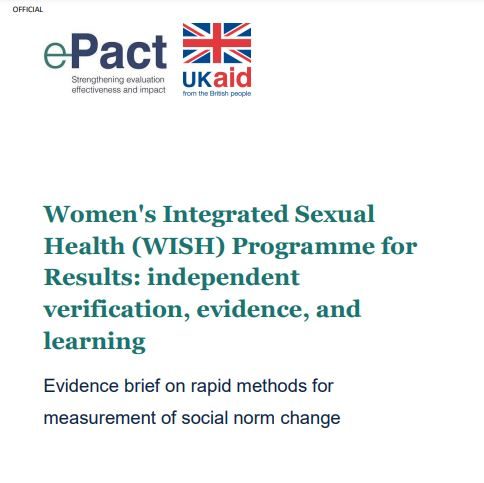This evidence brief was produced by WISH4Results (W4R), the Third-Party Monitoring team for the WISH programme. The purpose of this brief is to provide a review of rapid methods for measuring social norm change and make recommendations for WISH Implementing Partners (IPs) for how they might measure social norm change under WISH. Key messages from the brief include:
- At the time of writing this brief, there was no consistent definition of social norms used within the WISH programme, making it challenging to measure social norm change
- There is a set of social norms which could form the basis for a common approach to measurement across WISH IPs and country level programmes; these included early marriage, early childbirth, valuing of large families, and stigma around use of family planning by adolescents and unmarried people
- There is broad agreement in the literature on what to measure when assessing social norm change. Key indicators are empirical expectations (what I think others do); normative expectations (what I think others expect me to do/what others approve of); and sanctions for breaching the norm; • CARE’s Social Norms Analysis Plot (SNAP) offers a good framework for measurement of social norm change and could be adapted by WISH IPs
- Rapid methods identified include integrating norm questions within existing surveys; using focus groups to explore norm change retrospectively; vignettes, either in qualitative or quantitative methods; and observation of programme activities
- It is important to develop intermediate indictors (‘stepping stones’) to track progress towards norm change, as social norm change may not be achievable within the short time frame of some WISH interventions.
View the full evidence brief here.
